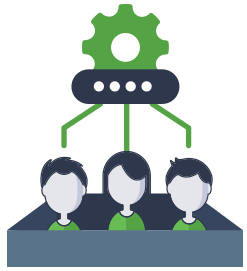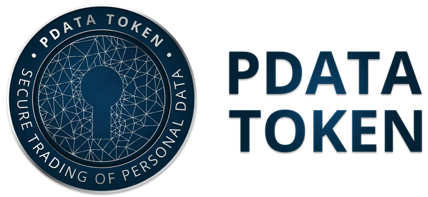The Personal Data Market is Broken
The Personal Data Market is Broken
Earlier this year, Facebook crossed a market cap of half a trillion dollars. This monumental figure can be sustained as the company has a very healthy P/E ratio of 27. The key revenue source for Facebook is ads, and the company is struggling to find more places to fit ads as the demand from advertisers is continuously increasing.
Why do so many companies want to advertise on Facebook?
Facebook has more personal data on each of its users than arguably any other company in the world. This personal data is extremely valuable as it allows companies the ability to target an audience with minute specifications. Demographics are now a macro means of targeting; Facebook allows companies to target an audience depending on their likes and the things they interact with.
Facebook is rich with personal data of its users and while it does not sell this data to companies, it leverages it to develop the most targeted ad campaigns possible. As a result, Facebook is able to make large sums of money from your personal data and you get nothing of it. Facebook isn’t alone in this as most internet companies that drive revenues from ads utilize users’ personal data to create extremely targeted ads which are highly desirable to companies.
This business model is extremely profitable for the companies, but you only have one means of getting a stake in it: being a shareholder. Therefore, while these companies are making money from aggregate personal data on the entire market, the earnings are largely given to the wealthy who can afford to own large sums of these companies’ shares.
Essentially, if someone has more money, he or she is able to make more money from your personal data. This system is obviously broken.
Get Your Fair Share
One of the prime goals of the blockchain movement is to disrupt centralized power, especially when it creates an unfair ecosystem. A new blockchain project, Opiria, is targeting the flaws in the personal data market. Opiria is paving the way for empowering individuals to earn money from their own personal data.
Presently, companies need to get access to consumers’ personal data to optimize their marketing campaigns. As consumers don’t have a channel to directly sell information to those companies and earn money from it, those funds are instead given to companies like Facebook who have huge amounts of consumers’ personal data.
Things are about to change.
Opiria is creating a personal data marketplace and anyone will be able to sell any aspect of their personal data to any company on Opiria’s marketplace. The direct result of this is that not only do consumers get a strong control of what aspect of their personal data are companies able to utilize in their marketing campaigns, but also they are the ones getting paid for their personal data (via PDATA tokens).
Such a concept simply makes sense as there isn’t any reason for consumers to be skipped on the payments for their own personal data. A positive side effect of direct personal data trades between consumers and companies is that the current battle to protect data will be mitigated. Consequently, consumers will know voluntarily offer personal data to companies and therefore the data will be extremely accurate.
Opiria is making the personal data market efficient and sensible. The middlemen are cut out and consumers are able to get money for their personal data while companies are able to get more accurate information than ever before.
Opiria Essential Links
🌐 Website: https://opiria.io/
💡 Whitepaper: https://opiria.io/static/docs/Opiria-PDATA-Whitepaper.pdf
👨 ANN Thread: https://bitcointalk.org/index.php?topic=3076122.0
💻 Telegram: https://t.me/pdatatoken
⌚️ Token Main Sale: May 1
Connect with me:
https://bitcointalk.org/index.php?action=profile;u=1700741;sa=summary
https://steemit.com/@hatu – Follow for a new ICO analysis every day!
Twitter
Telegram Group – Keep up with ICOs




good info.
Glad you liked it :)
What couse it???
Well, I don't think companies are particularly interested in utilizing middlemen as it raises costs of data acquisition.
The simple truth is that until now, there hadn't been a channel that directly connects companies with consumers to facilitate the purchase of personal data. The market inefficiency was caused by a gap in product availablity.
Jeut,, neujak lan tring keudeh..